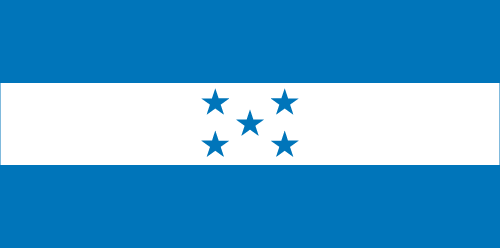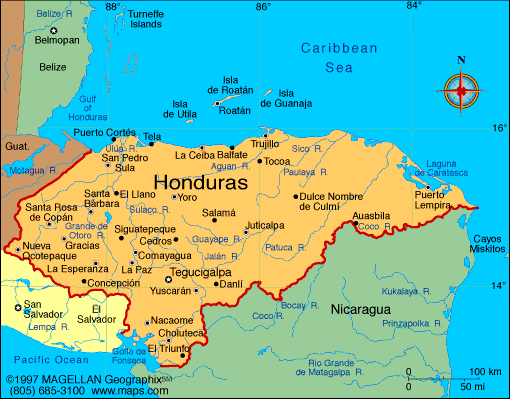- Despite the relative benign of
Honduran rulers, the people did remain the poorest of Central
America. This became more a problem as large landholders began
seizing land, as in El Salvador, away from the agrarian peoples
living on the land in the 1950s and 1960s in order to extend their
plantations and industry.
- As unrest began unfolding throughout
Central America, the Honduran government became a type of safety
valve for the U.S. government to rely on for support. Thus, in turn,
the government and military in Honduras began to be more repressive
as the U.S. wanted it to use Honduras as a base of operations for
anti-communist operations in Central America, most notably for the
Contras (see Nicaragua). For
this, Honduras was given hundreds of millions of dollars by the
U.S., in particular towards the military.
- The political uprooting occurring in
Central America expressed itself in Honduras similarly with guerilla
and leftist movements. Although in the 1980s Honduras had its own
right-wing death squads, the Contras began to surpass the Honduran
military in numbers and military weaponry which created instability.(24)
The general situation of Honduras just deteriorated, because there
was no consistent or prominent movement trying to the lead the
population towards some improvement. On the other hand, also the
U.S. did not have much use for Honduras except for the military,
thus meaning that there was a type of open-ended strife and not any
clear direction forward for poor Hondurans.
|



